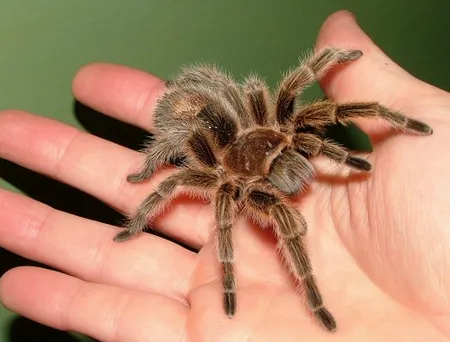What is a Pet Tarantula
Pet tarantulas are increasingly popular exotic pets, and in Brisbane, the interest in these fascinating arachnids is growing. Tarantulas, belonging to the Theraphosidae family, are large, hairy spiders known for their impressive size and relatively docile nature compared to many other spider species. They are arthropods, characterized by their eight legs, two body segments (cephalothorax and abdomen), and chelicerae (fangs). The allure of keeping a tarantula lies in their unique appearance, intriguing behaviours, and the relatively low-maintenance care they require. Owning a tarantula in Brisbane can be a rewarding experience for those who appreciate the unusual and are prepared to provide the specific care these creatures need.
Appearance and Characteristics
Tarantulas boast a diverse range of appearances, with colors and sizes varying significantly across different species. Their bodies are covered in tiny hairs, called setae, which serve various functions, including sensory perception and defense. These hairs can sometimes cause irritation if they come into contact with skin. The size of a tarantula can range from a few inches in leg span to over 10 inches, making them some of the largest spiders in the world. Their cephalothorax houses the eyes, mouthparts, and legs, while the abdomen contains the vital organs. Many species exhibit vibrant colors and patterns, adding to their visual appeal. When you consider pet tarantulas in Brisbane, you will notice the broad appeal based on the look of the species.
Size and Lifespan
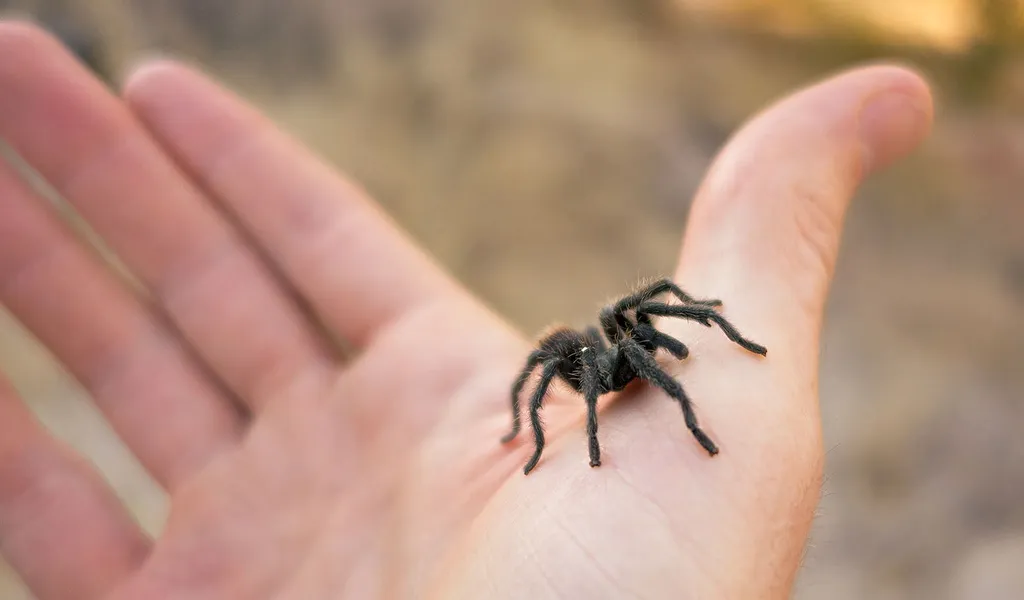
The size and lifespan of a tarantula can greatly influence the decision to keep one as a pet. Size varies significantly; some species, like the Mexican Red Knee, grow to have a leg span of around 5-6 inches, while others, such as the Goliath Birdeater, can reach over 10 inches. In terms of lifespan, tarantulas are known for their longevity. Females generally live much longer than males. Female tarantulas can live for 15 to 30 years or even longer in some cases, while males typically live for 5 to 10 years. The lifespan depends on the species, the environment, and the care provided. Knowing the size and lifespan of the species you are considering is crucial for responsible pet ownership, as it impacts the space required and the long-term commitment involved, especially when pet tarantulas are concerned in Brisbane.
Origin and Habitat
Tarantulas are found in diverse habitats across the globe, primarily in tropical and subtropical regions. They inhabit various environments, including forests, grasslands, and deserts. Their natural habitats play a vital role in understanding their care needs. Many tarantula species are terrestrial, living in burrows or under rocks, while others are arboreal, residing in trees. Native to places like South America, Africa, and Asia, understanding their origin helps replicate their natural environment in captivity. When bringing a pet tarantula to Brisbane, replicating the right habitat is key to their health, well-being and survival.
Types of Pet Tarantulas
There are many different tarantula species suitable for keeping as pets, each with unique characteristics and care requirements. Some popular choices include the Mexican Red Knee (Brachypelma hamorii), known for its striking coloration and relatively docile temperament; the Chilean Rose Hair (Grammostola rosea), a hardy and beginner-friendly species; and the Pinktoe tarantula (Avicularia avicularia), an arboreal species with a vibrant appearance. Selecting a species depends on experience, preferences, and available resources. Considering factors like temperament, size, and specific habitat needs will help you choose the right pet tarantula in Brisbane.
Popular Brisbane Tarantula Species
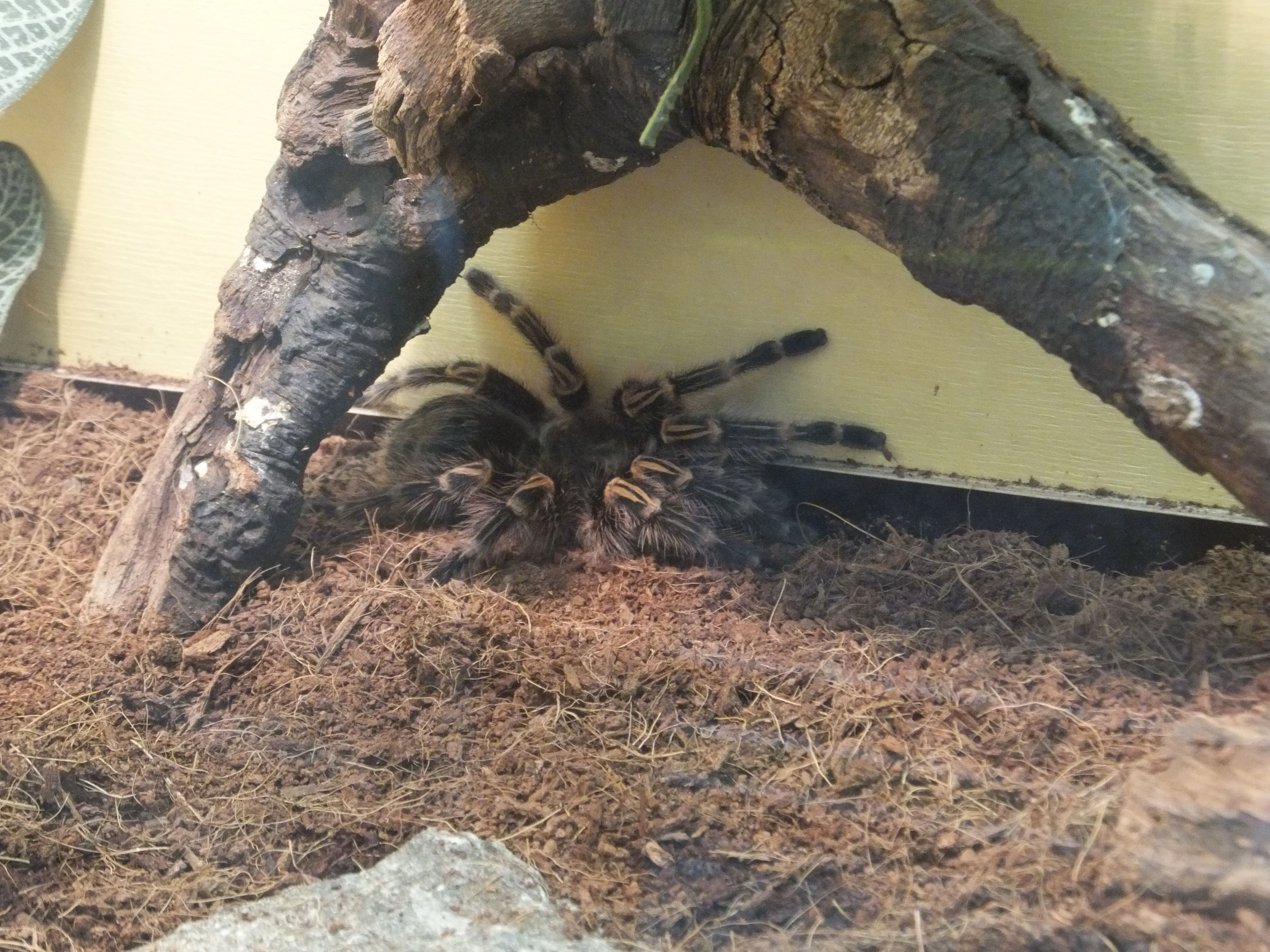
Brisbane pet owners often have preferences for tarantula species that are well-suited to the local climate and easily available. The Mexican Red Knee is popular due to its striking appearance and manageable care requirements. The Chilean Rose Hair is also common, appreciated for its hardiness and gentle nature. Other options include the Cobalt Blue tarantula, known for its vivid coloration, but requiring more experience, and the Greenbottle Blue tarantula. When choosing a tarantula in Brisbane, ensure you can meet the specific needs of the species, including appropriate temperature, humidity, and habitat setup.
How to Care for Your Pet Tarantula
Caring for a tarantula involves providing a suitable habitat, proper feeding, and regular maintenance. The enclosure should be appropriately sized for the species, with adequate ventilation and secure lid. Substrate, such as coconut fiber or peat moss, should be used to maintain humidity and provide a comfortable environment. Feeding tarantulas involves offering insects like crickets, mealworms, or roaches, depending on the size of your tarantula. Ensure the tarantula has access to fresh water. Regularly clean the enclosure and monitor the tarantula for signs of health issues, such as changes in behaviour, appetite, or appearance. In Brisbane, be mindful of the climate and adjust humidity levels as needed to keep your tarantula comfortable.
Creating the Perfect Habitat
Creating the perfect habitat is crucial for your tarantula’s well-being. The enclosure should be appropriately sized, considering the adult size of the species. A secure lid is essential to prevent escapes. The substrate should be deep enough for burrowing species, usually consisting of coco fiber, peat moss, or a mix of both. Temperature and humidity levels must be maintained according to the species’ needs, using a heat mat or lamp and regular misting. Provide hiding places such as cork bark or artificial plants to reduce stress. Ensure the enclosure is in a stable environment, away from direct sunlight and loud noises. For pet tarantulas in Brisbane, focus on replicating the natural environment to ensure comfort.
Feeding Your Tarantula
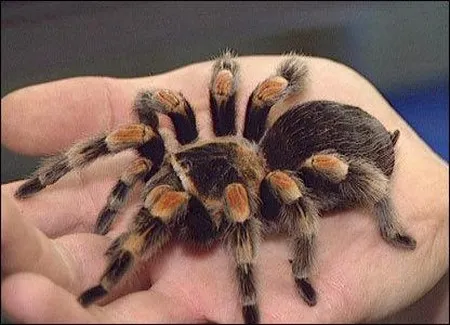
Feeding your tarantula is a straightforward process, but it’s important to understand the right approach. The primary diet of a tarantula consists of live insects. The frequency of feeding depends on the tarantula’s age and size; juveniles need to be fed more often than adults. Common food items include crickets, mealworms, and roaches. Ensure the insects are gut-loaded with nutritious food before feeding them to your tarantula. Remove any uneaten insects within 24 hours to prevent stressing your tarantula. Always provide fresh water in a shallow dish. Remember, a tarantula may occasionally refuse food, especially before molting. Proper feeding contributes to a healthy pet tarantula in Brisbane.
Handling and Safety
Handling a tarantula should be done with caution and consideration for both the owner and the spider. While many tarantula species are docile, they can still bite if they feel threatened. Always handle them over a soft surface, close to the ground, in case of a fall. Avoid sudden movements or loud noises to prevent startling the tarantula. Wash your hands thoroughly before and after handling to prevent contamination. Some tarantulas have urticating hairs, which can cause skin irritation; be aware of this. If you are new to tarantula ownership in Brisbane, it’s best to observe the tarantula from a distance until you’re more familiar with its behavior and comfortable with handling it.
Health and Common Issues
Tarantulas, like any pet, can experience health issues. Common problems include mites, fungal infections, and injuries during molting. Mites can infest the tarantula and its enclosure; they can be removed with targeted cleaning and treatment. Fungal infections can arise from excess humidity or poor ventilation. Ensure your tarantula’s enclosure maintains the right temperature and humidity. During molting, tarantulas are vulnerable. Provide a stress-free environment and do not disturb them during this process. Always monitor your pet tarantula in Brisbane for any signs of illness or injury, and seek professional advice if needed.
Signs of a Healthy Tarantula
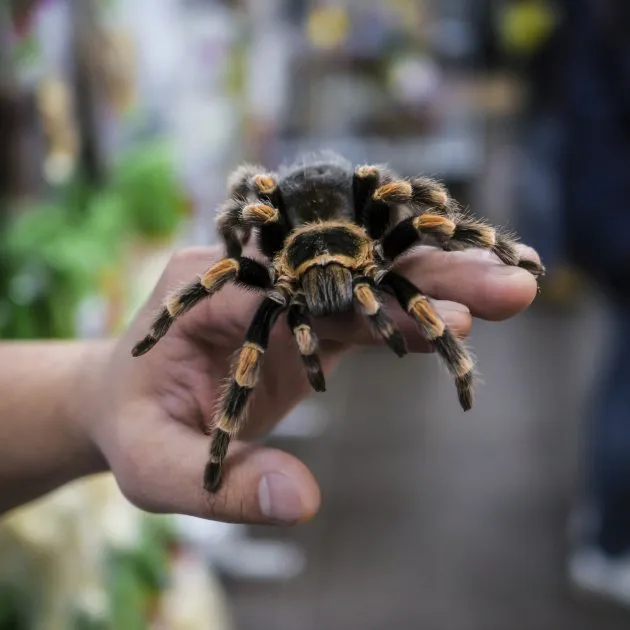
Knowing the signs of a healthy tarantula is essential for responsible pet ownership. A healthy tarantula typically has a good appetite and actively hunts its prey. It should have a plump abdomen, indicating that it is well-fed. The tarantula should be alert and responsive to its environment, moving around and exploring its enclosure. During molting, the tarantula will shed its exoskeleton; this is a natural and necessary process. A healthy tarantula will have clear, bright eyes and no signs of parasites or injuries. If you notice any changes in the tarantula’s behavior, appetite, or appearance, consult an experienced tarantula keeper or a veterinarian specializing in exotic pets in Brisbane.
Where to Buy a Pet Tarantula in Brisbane
Finding a reputable source to buy a pet tarantula in Brisbane is crucial for the health and welfare of the spider. Local pet stores specializing in exotic pets are a good starting point. These stores often have experienced staff who can provide guidance on tarantula care. Online marketplaces and breeders also offer tarantulas for sale; however, do your research to ensure the seller is reputable and provides healthy specimens. Consider attending local reptile shows or expos, where you can meet breeders and view tarantulas in person. Always check the health of the tarantula and ask about its origin and care history. Buying from responsible sources helps promote ethical pet ownership in Brisbane.
Responsible Tarantula Ownership
Responsible tarantula ownership encompasses more than just providing food and shelter; it also includes understanding the needs of the species and the legal requirements associated with owning exotic pets. Research the specific needs of your chosen tarantula species before acquiring it. Ensure you have the appropriate enclosure and supplies ready. Provide a suitable environment that mimics the tarantula’s natural habitat. Handle your tarantula with care and avoid unnecessary stress. Be aware of any local laws or regulations concerning exotic pet ownership in Brisbane. Educate yourself about tarantula care, and be prepared for a long-term commitment. Prioritize the health and well-being of your pet, and enjoy the unique experience of owning a tarantula.
